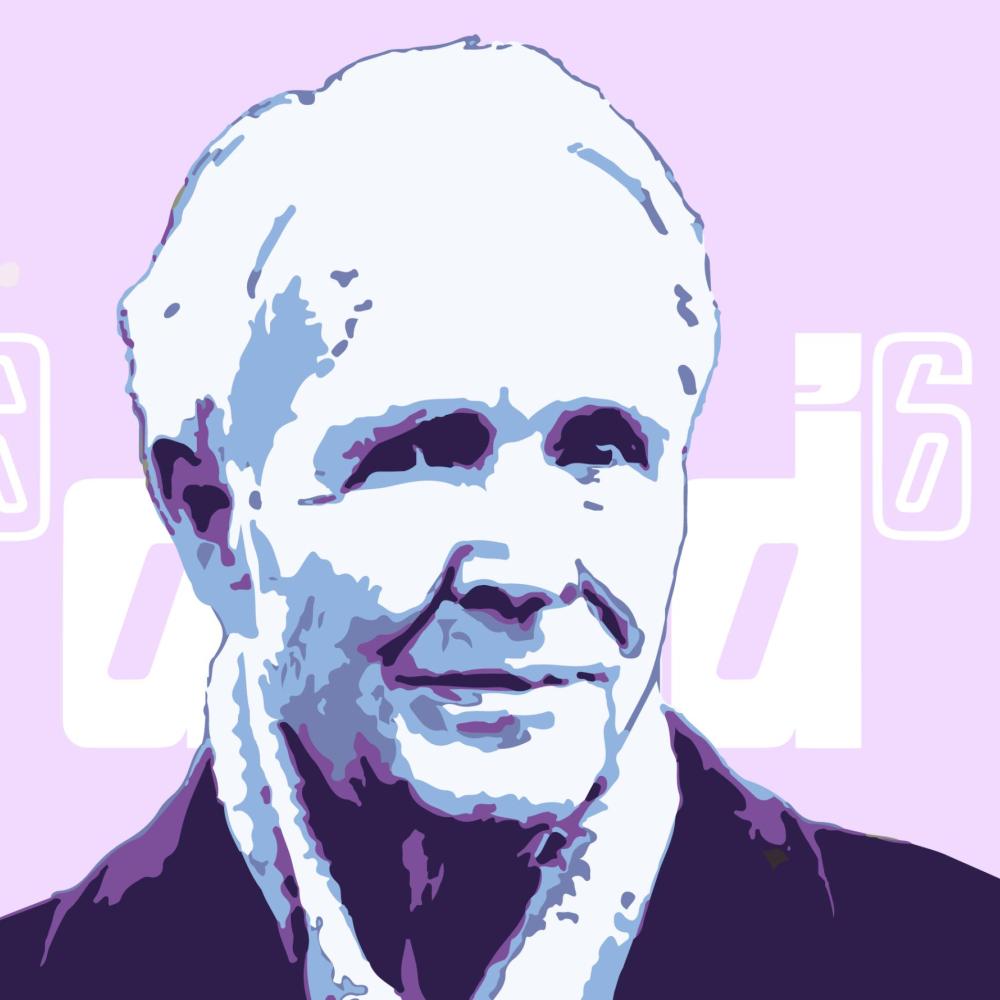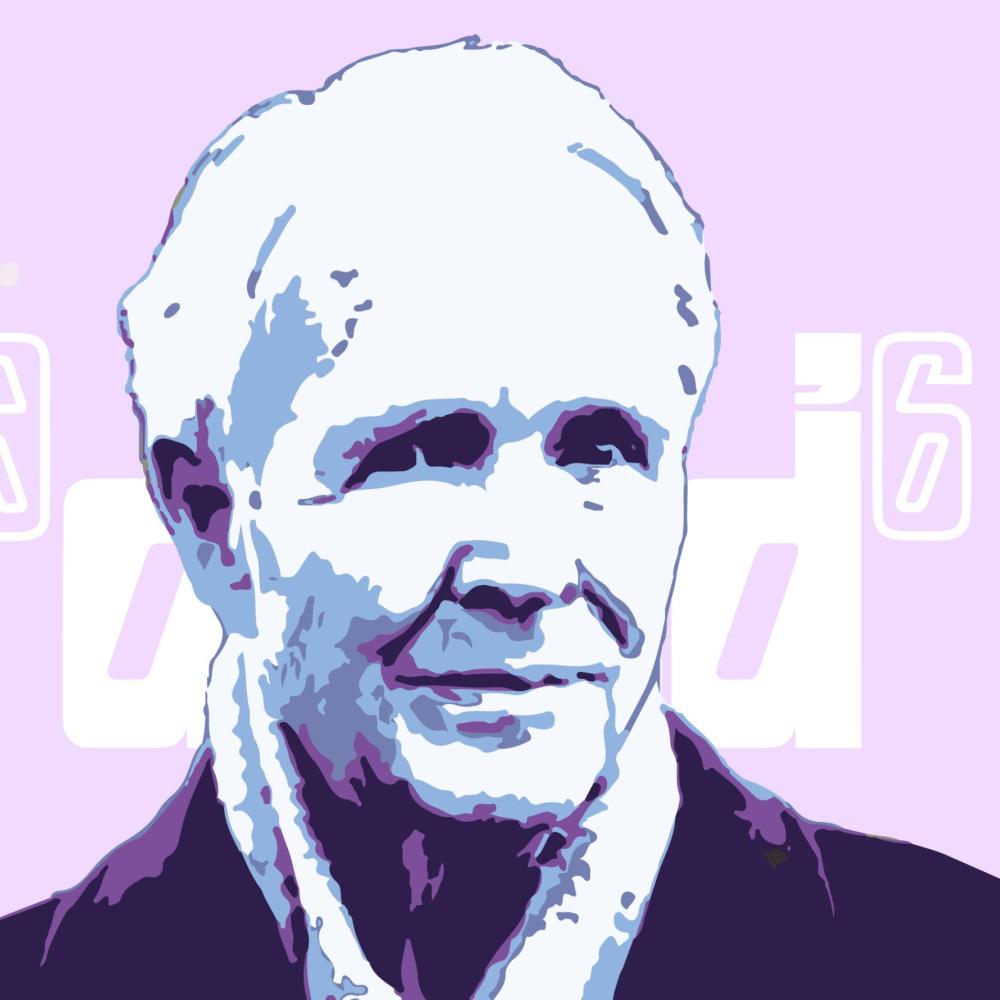

Jan TERLOUW (°1931)
Profession: Politician, author and physicist
Nationality: Dutch
Why an honorary doctorate?
In 2017, Rector Caroline Pauwels presents the honorary doctorate to Jan Terlouw.
Honoured for word and deed
The man has shown great social commitment and a critical, righteous spirit not only in his political career but also through his writing. He does not close his eyes to current (climate) problems and makes his voice heard for more sustainability. He is awarded the doctor honoris causa along with four other committed scientists. The theme of this year's honorary doctorates is 'Break down the walls’. Because only by tearing down (scientific) walls can social and scientific problems be solved.
Does man stand out in terms of homogeneous consequence? Not really. Our species is not programmed to be predictable. Everyone is too different, too unique, and life is sometimes too capricious. Trying to remain on course involves gusts of wind in all directions. Sometimes the compass simply seems to fail. Other times, true north remains true despite the strongest gale. Everyone is right once in a while. And everyone is wrong at some point.
"Humans are as consequent as a magic ball and as predictable as a tsunami and sometimes they're suddenly right."
About his career
Man of many words
15 November 1931. Jan Cornelis Terlouw is born in the Dutch village of Kamperveen. The family moves frequently and lands in Wezep, a village on the Veluwe, as the Second World War breaks out. Jan witnesses the deportation of a classmate at close range and must regularly take shelter from the bombings.
The period makes an indelible impression on young Jan. German army officers move into the Terlouws' house and Jan himself helps passers-by during the winter of famine, searching for food and a better life.
Even though Jan must interrupt his studies during the Second World War, he graduates in mathematics and physics from Utrecht University in 1956. He humbly fulfils his military obligation and in 1958 throws himself into scientific, physical research in the Netherlands, the USA, and Sweden. He will do this for 13 years. In 1964, he receives his doctorate in nuclear physics. He researches the peaceful use of the energy of the atomic bomb.
1966. Jan Terlouw cannot ignore the call of politics and joins the D66 party. He ends up in municipal politics in Utrecht, where he wants to involve citizens in everything as much as possible. After the elections, he becomes group chairman and focuses on environmental issues.
In the meantime, the writing bug has also taken hold of him. Every day, Jan tells his children stories of his own devising, and they hang on his every word. It is his wife who insists on writing these stories down and taking them to a publisher. In 1970, Terlouw makes his debut with 'Pjotr: voluntary exile to Siberia'.
Jan Terlouw is so interested in politics that he says goodbye to his scientific work. After the 1971 elections, Jan finds himself back in the Lower House. He stays there until 1981 mainly dealing with the topics of economy, energy and the environment. In '73, he succeeds Hans van Mierlo as group chairman. Unlike the latter, Terlouw is not a fan of intensive cooperation with progressive parties such as the PvdA, and that trajectory falls apart.
Because D66 is not doing too well, there is talk of dissolving the party. But the tide turns and Terlouw once again makes himself available as list leader for the 1977 elections to the Lower House. Ultimately, the party does not govern. It is the time of the oil crisis and the cruise missile issue. Terlouw pushes for a compromise: postpone its deployment and negotiate with the Soviet Union on arms reduction.
Back to writing for a moment. In '78, Terlouw publishes 'De derde kamer', this time a novel for adults. He also ventures into more non-fiction for this target group. His best-known work is the political diary "To seventeen seats and back", about the political period '81-' 82.
Then, in those years, during the Agt II and III cabinet, Terlouw becomes Minister of Economic Affairs and Deputy Prime Minister. But the atmosphere is not what it should be, and internal disagreements are piling up. The new elections fall flat and Terlouw quits the chairmanship of D66 and resigns as outgoing minister.
It is 1983 and Jan Terlouw is working in Paris as Secretary-General of the Conference of European Transport Ministers; he wants to improve transport between Western European (and later Eastern European) countries. In 1991, he becomes Queen's Commissioner in Gelderland - the first D66 member to hold such an office - and at the end of 1996 he opts for his well-earned retirement. He remains somewhat active in political auxiliary functions and chairmanships of mainly nature organisations, and as a man of many words, he holds lectures here and there.
Terlouw's books remain a constant throughout his career. ‘Oorlogswinter’ is based on his own experiences during WWII. He also exposes contemporary problems in his writing and does not hide his political interest. Terlouw spreads a message of democracy, free speech, liberalism, and anti-extremism through his stories. He wants to show that you must look at problems from all sides before making decisions.
Terlouw had previously written with his daughter Sanne, but he lacked the time, there in those turbulent ‘80s. In 2006, this changes and at least six books by father and daughter have been published.
In an interview in 2012, Terlouw says that he no longer wants to write children's books; the world of the youth, full of computer games and mobile phones, is too distant from him. He does not want to appear forced. Yet, in 2016, 'The Greed Gas', a sequel to 'King of Katrina', hits the shelves.
In 2018, Terlouw shows his poetic side for the first time with the collection 'Gedichte gedachten'.
1964: PhD in Nuclear Physics
1981-1982: Jan Terlouw becomes Deputy Prime Minister
1991: Prize of the Dutch Children's Jury
Voluntary exile to Siberia
With his book 'Pjotr: Voluntary Exile to Siberia', Jan Terlouw makes his debut in the world of children's books.
Between books and politics
From nuclear physicist to politician to children's book author, a story that could come out of a book.
Staying on course
Trying to remain on course involves gusts of wind in all directions. Sometimes the compass simply seems to fail. Other times, true north remains true despite the strongest gale.
What is an honorary doctorate?
VUB has awarded honorary doctorates every year since 1978 to personalities from the most diverse backgrounds who have made a remarkable contribution to their field and to society. From this solemn moment of recognition, they bear the honorary title of Doctor Honoris Causa of VUB.